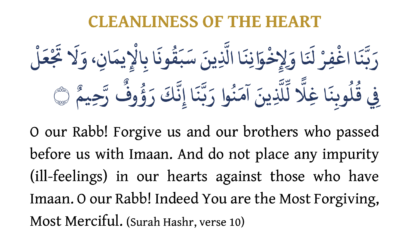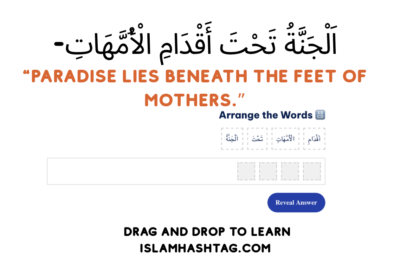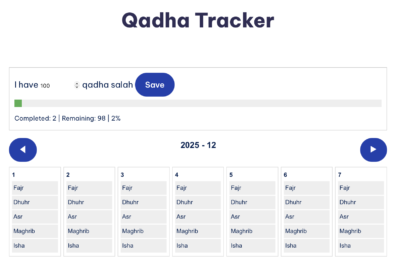7 Reasons why we need more Female Scholars in Islam
A friend of mine who is a revert and has been studying deen since 5 years was approached by a Man for marriage. He told her “Since you are a Muslimah and a revert, Marry me and I will teach you some of Islam.”She said to him that she is already studying deen and intends to study more and become a good Scholar one day. Surprisingly the Man laughed at her and said oh no! Women cannot become scholars!!
Surprising but true many people even in this day and age holds this view inspite of their knowledge of the hadith that “Seeking of knowledge is compulsory on every Muslim male and female”, and other texts which make the acquisition of knowledge compulsory on both males and females.
Reason why we need more Female Scholar in Islam

1. Seeking Ilm is Wajib on both Men and Women evident from Hadith
- 1) “The acquiring of knowledge is wajib on every Muslim.” (Bayhaqi on the authority of Anas)
- 2) “The acquiring of knowledge is a faridah (compulsory duty) on every Muslim.” (Daylami on the authority of Ali)
- 3) “The acquisition of fiqh (understanding of Deen) is wajib on every Muslim.” (Hakim in his Tarikh on the authority of Anas)
- 4) “Acquire knowledge and pass it on to the people.” (Darqutni on the authority of Abu Saeed, and Bayhaqi on the authority of Abu Bakr)
- 5) “Acquire knowledge before it is raised.” (Daylami on the authority of Ibne Mas’ud on the authority of Abu Hurayrah)
- 6) “O people! hold on to knowledge before it is raised.” (Tabrani and Khateeb on the authority of Abu Umamah)
- 7) “O people! seek knowledge before it is raised.” (Ahmad and Daarmi, Tib and Abu al-Shaykh in his tafseer, and Ibne Mardawiyya on the authority of Abu Umamah)
- 8) “Destruction for the one who has no knowledge.” (on the authority of Hudhayfah)
2.Ruling regarding Haidh and Nifas
Many Woman do not have any Idea about Haidh and Istihadha.They do not know when their Monthly Period ends and when should they Start praying. We cannot expect every Woman to disclose their Personal and sensitive topic to mufti sahab and then follow him again and again with concern about irregular period and doubts about Istihadha.Approaching a Female scholar is much easy and has more Haya.
For such women it becomes extremely difficult to find out matters of the Deen. If by chance, access to someone is possible, or she has a father, son, brother, etc. in the house who is an aalim, then there are certain matters which women cannot ask them about.In order to fulfil the general needs of women, there is no alternative but to have such women who are educated and from whom other women could get answers to all their questions. Based on this, it is established that to impart Deeni knowledge to women in the normal way, is wajib.
3. Seeking Ilm is fardh bil-ghayr
(1) If something is compulsory, everything that will aid in fulfilling it will also be compulsory. For example, a person is unable to go for Hajj on foot. But in his time, trains and ships have been set aside to undertake that journey and he also has the money and ability to undertake that journey.
It will therefore be compulsory on him to intend to undertake the journey, purchase the ticket and board the train or ship. To purchase the train or ship ticket and to board it in itself is not compulsory on him according to the Shariah, but because it is a means to fulfilling a fardh act (i.e. hajj), it will also become compulsory on him. This is called fardh bil-ghayr (i.e. compulsory because of another factor).
4.It is Wajib alal Kifayah to have few Person who has studied deen and can answer the question of Women
Experience has shown that for knowledge to be well preserved in the minds, the study of books is nesessary. This happens to be the normal way of education. And to preserve Deeni knowledge is compulsory. So based on the first principle, it will also be compulsory to impart Deeni knowledge in
the normal way. However, this is wajib alal-kifayah, i.e. in every place, there should be a few persons who have studied the Deen and who can answer the questions of those who need to know.
5. Scholars Agree
The scholars are agreed that there is no difference between men and women in any type of narration, and that the two are alike in the right (and duty) to receive, hold and convey hadlth. The proofs for this are overwhelming and go back to the very first occasion that Islam was preached in public.
We cannot be surprised by this, given that the study of hadlth is not an idle or leisure pursuit, but a means to understand the guidance of the Quran and then implement it in personal life and in society. The lawfulness of receiving and transmitting hadlth is based on the duty of all Muslims to know their religion (dm) and put it into practice: neither men nor women are exempted or excluded from this duty.Example is a narration by Aisha ra.
we need more Female Scholars in Islam
6. Women Scholars are not less worthy
Hadith scholars did not distinguish between men and women teachers as being more or less worthy for being men or women. They paid the same attention to preserving accurately the wording of hadiths narrated by women as to those narrated by men. In the later period interest in seeking out women scholars is a part of the effort to get higher isnads. If a woman shaykhah outlived all the men in her generation, she would attract a lot of students, who would come to study with her in order to make their isnad higher.
7. Female Scholarship is a legacy
Among the most prominent female scholars was Umm Al-Darda Al-Soghra, who died in 700 AD. She was an authority on “ahadith” (sayings of Prophet Muhammad, peace be upon him) and several great scholars at the time attended her classes such as Hasan Al-Basri, who died in 728 AD and was a great scholar, theologian and judge.The celebrated scholar Muhammad Ibn Sirin and Abu Bakr Ibn Hazm, a great judge of Madinah, also attended her classes. This great female scholar was known for her in-depth fatwas. She held classes inside Damascus Mosque where she explained complicated juristic viewpoints to her students, both male and female. Even the Umayyad Caliph Abdul Malik Bin Marwan attended her classes.
Another prominent female scholar was Nafisa Bint Al-Hassan, the granddaughter of Prophet Muhammad (PBUH). She grew up in Madinah where she attended the sessions of great scholars, such as Imam Malik Ibn Anas and learned from them.
She was an eminent scholar who taught two of the great scholars of the time: Abu Abdullah Muhammad Idris Al-Shafi’i and Ahmad Ibn Hanbal, who were two of the four great imams. The former’s legacy on juridical matters and teaching led to the Shafi’i School of Jurisprudence while that of the latter led to the Hanbali School of Jurisprudence.
Ref: 1.Muhaddithat (the female scholars), 2. Al Arabiya 3. Bahishti Zewar
Discover more from Islam Hashtag
Subscribe to get the latest posts sent to your email.








Mashallah! May Allah give you the best of this world and the hereafter! Ameen!
Informative article! Mashallah.